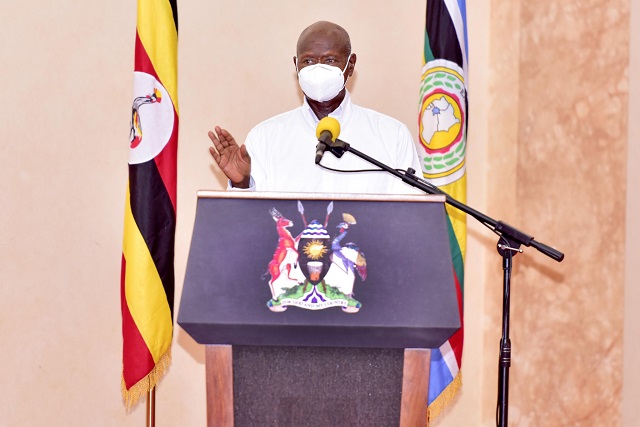
Kampala, Uganda | THE INDEPENDENT | President Yoweri Museveni has declined to assent to the Public Procurement and Disposal of Assets (Amendment) Act, 2020. The Act passed on February 21, 2020, was aimed at reducing bureaucracies as well as ensuring efficacy and transparency in the procurement of public assets
The Act also removed the office of the Accounting Officer in the process of administrative review and provided for the appointment of a Registrar of a Tribunal to handle procurement disputes. An administrative review is initiated when a bidder complains to have lost a tender due to a breach of procurement laws among others.
However, President Museveni has returned the Bill to Parliament indicating that the renaming of the Public Procurement and Disposal of Public Assets Authority (PPDA) to the Public Procurement Registration Authority without providing for the transfer of its liabilities and obligations to the new one left a lacuna in the law, contracts of employment and contracts with service providers, pending court cases and other contractual obligations.
The Speaker of Parliament Rebecca Kadaga told parliament on Tuesday that the stated obligations needed to be transferred to the new Authority under the law to avoid uncertainties.
President Museveni also found the provision of the new tribunal contradictory saying that the changes made by parliament in regard to the tribunal membership, functions, procedures and powers need to be reconsidered to enable its effective operation.
The Public Procurement and Disposal of Public Assets Authority (PPDA) was established in 2003 by an Act of Parliament, to regulate public procurement processes in Uganda.
Article 91(1) of the Constitution empowers Parliament to make laws through Bills passed by Parliament into Acts and thereafter assented to by the President. However, the President is still mandated to return the Bill for reconsideration if he is not satisfied with its provisions.
The Speaker then requires the responsible Minister the re-table the Bill after which it is reconsidered and sent back to the President for approval. But, it may become law without the President’s assent if he or she returns it to Parliament twice. This decision should be taken by at least two-thirds of all legislators.
Previously, the Ministry of Finance said that the new law would reduce the delays in the project execution arising out of a tedious procurement process
*******
URN
 The Independent Uganda: You get the Truth we Pay the Price
The Independent Uganda: You get the Truth we Pay the Price





